
 When DeKalb County Public Schools announced that they would start the 2020-21 school year virtually, Susan and Scott Rosenbaum were worried.
When DeKalb County Public Schools announced that they would start the 2020-21 school year virtually, Susan and Scott Rosenbaum were worried.
“We were desperate for a safe, high quality, face-to-face learning option. Our second-grade son had a miserable spring with worksheets and videos. He needed a small class and a real live teacher. Our daughter was entering kindergarten. We wanted her to learn with other kids, not on a computer.”
“We toured The Epstein School and loved their model — two teachers in each classroom, small class size, and the wonderful mix of Judaics and secular studies. But tuition for two kids was not do-able for us. When we learned we qualified for scholarship support for both kids through ALEF Fund we were overjoyed. “
“This year at the Thanksgiving table when we went around to say what we were thankful for, my son said, ‘I’m thankful for my awesome school.’”
Susan and Scott were contributors to ALEF Fund even when their kids were in public school, years before they transferred to a Jewish day school. They knew it was an easy way to take the state taxes they’d have to pay anyway and turn them into scholarships supporting 20 different Jewish day schools and Jewish preschools in Georgia. “Everyone should support ALEF Fund,” Susan says. “The impact is huge.”
ALEF Fund needs you to support Jewish education! Hurry and renew your pledge. You have until December 31 to apply for a 2021 tax credit. Don’t miss this opportunity to support Jewish education. Our website, aleffund.org, is open for pledges. Renewing is easy — just log on as a returning user and follow the prompts. If you need assistance, call Rachel Rosner at 404-870-1879 and she will be happy to assist you.
As a past participant, you know that ALEF Fund is a win-win: redirecting state tax dollars to scholarships for hundreds of families a year.

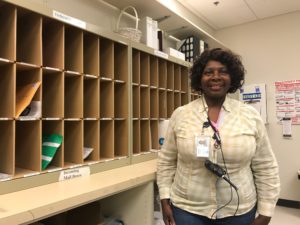

 Savory Beet Latkes
Savory Beet Latkes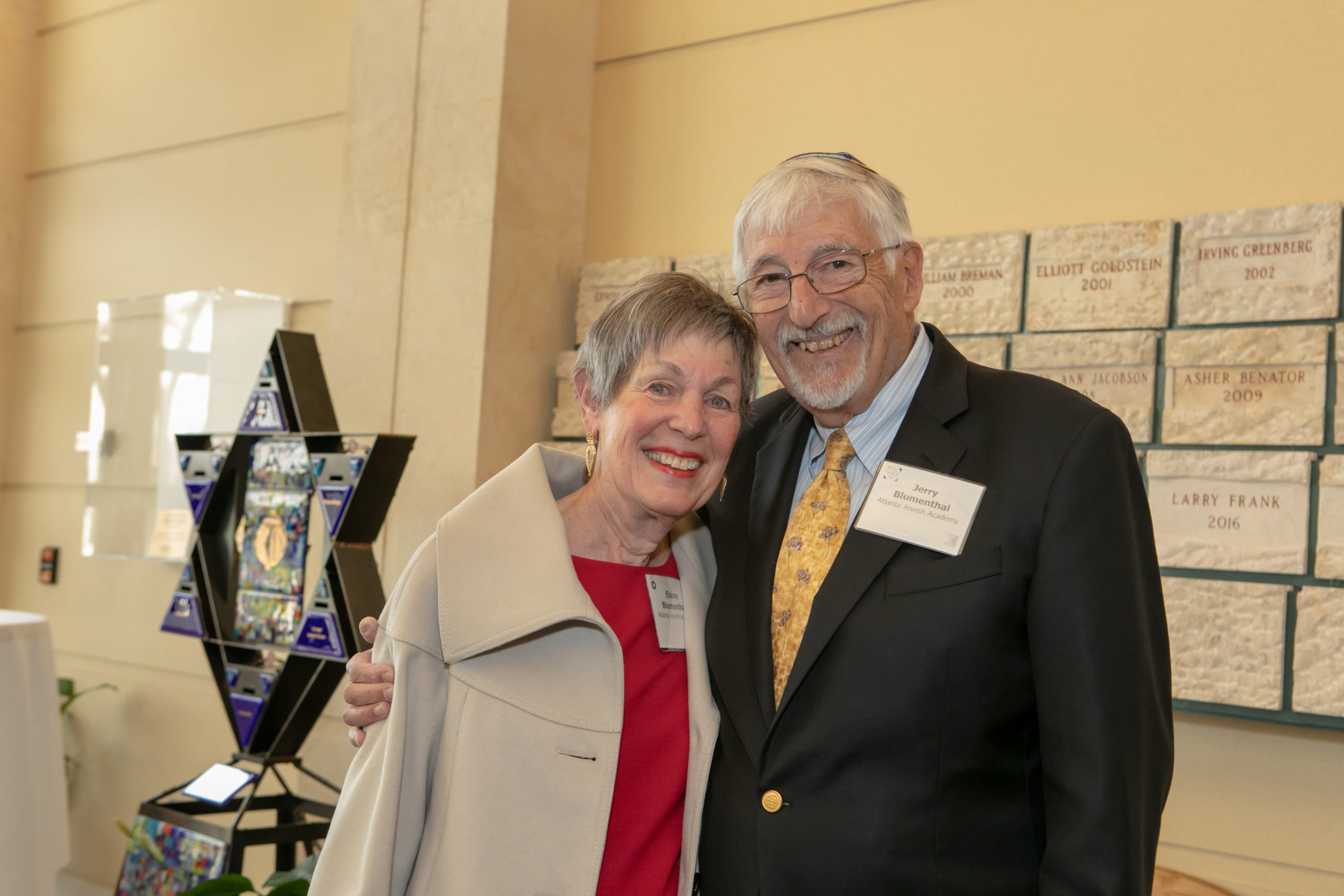
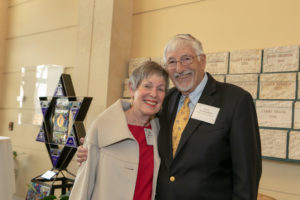 Elaine and Jerry Blumenthal’s oldest son Matthew was five years old when he was diagnosed with Muscular Dystrophy. Matthew’s special needs, and a deepening commitment to Jewish life set a chain of events in motion that had a profound impact on the whole family. I grew up in a warm, orthodox Jewish family in Savannah,” Jerry says. “Elaine grew up in Topeka, Kansas where there were only about 100 Jews in the whole town. It wasn’t until we attended a retreat at Camp Barney where Rabbi Irving (Yitz”) Greenberg was the scholar in residence, that our family began to walk a road to greater Jewish observance.It became clear to us that Matthew and all our kids really belonged in Jewish day school. The Hebrew Academy, which is now Atlanta Jewish Academy, was the community day school that made sense for us. Matthew attended from first grade through graduation. Eventually, with the encouragement of Rabbi Goodman at the Ahavath Achim Synagogue, we decided to have a kosher home.”
Elaine and Jerry Blumenthal’s oldest son Matthew was five years old when he was diagnosed with Muscular Dystrophy. Matthew’s special needs, and a deepening commitment to Jewish life set a chain of events in motion that had a profound impact on the whole family. I grew up in a warm, orthodox Jewish family in Savannah,” Jerry says. “Elaine grew up in Topeka, Kansas where there were only about 100 Jews in the whole town. It wasn’t until we attended a retreat at Camp Barney where Rabbi Irving (Yitz”) Greenberg was the scholar in residence, that our family began to walk a road to greater Jewish observance.It became clear to us that Matthew and all our kids really belonged in Jewish day school. The Hebrew Academy, which is now Atlanta Jewish Academy, was the community day school that made sense for us. Matthew attended from first grade through graduation. Eventually, with the encouragement of Rabbi Goodman at the Ahavath Achim Synagogue, we decided to have a kosher home.”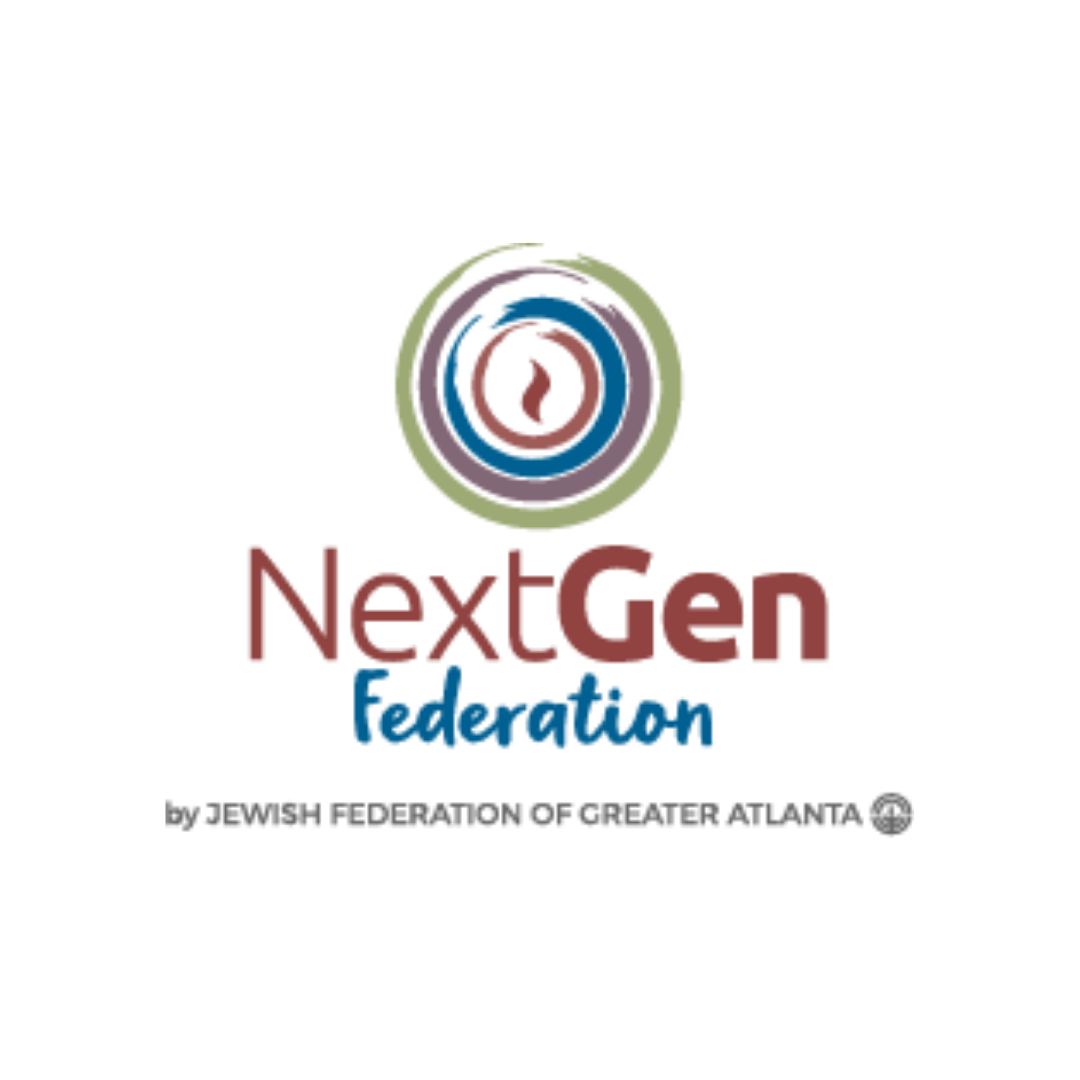
 In partnership with Repair the World Atlanta and Shalom Corps, NextGen is excited to launch a virtual volunteer program to bring together young adults to work with seniors living in assisted living and skilled nursing and rehabilitation homes. COVID-19 has brought many challenges, and one we continue to see are the effects COVID-19 have on seniors who are living in assisted living. It’s not as easy for families to visit, and technology can often be challenging to navigate.
In partnership with Repair the World Atlanta and Shalom Corps, NextGen is excited to launch a virtual volunteer program to bring together young adults to work with seniors living in assisted living and skilled nursing and rehabilitation homes. COVID-19 has brought many challenges, and one we continue to see are the effects COVID-19 have on seniors who are living in assisted living. It’s not as easy for families to visit, and technology can often be challenging to navigate.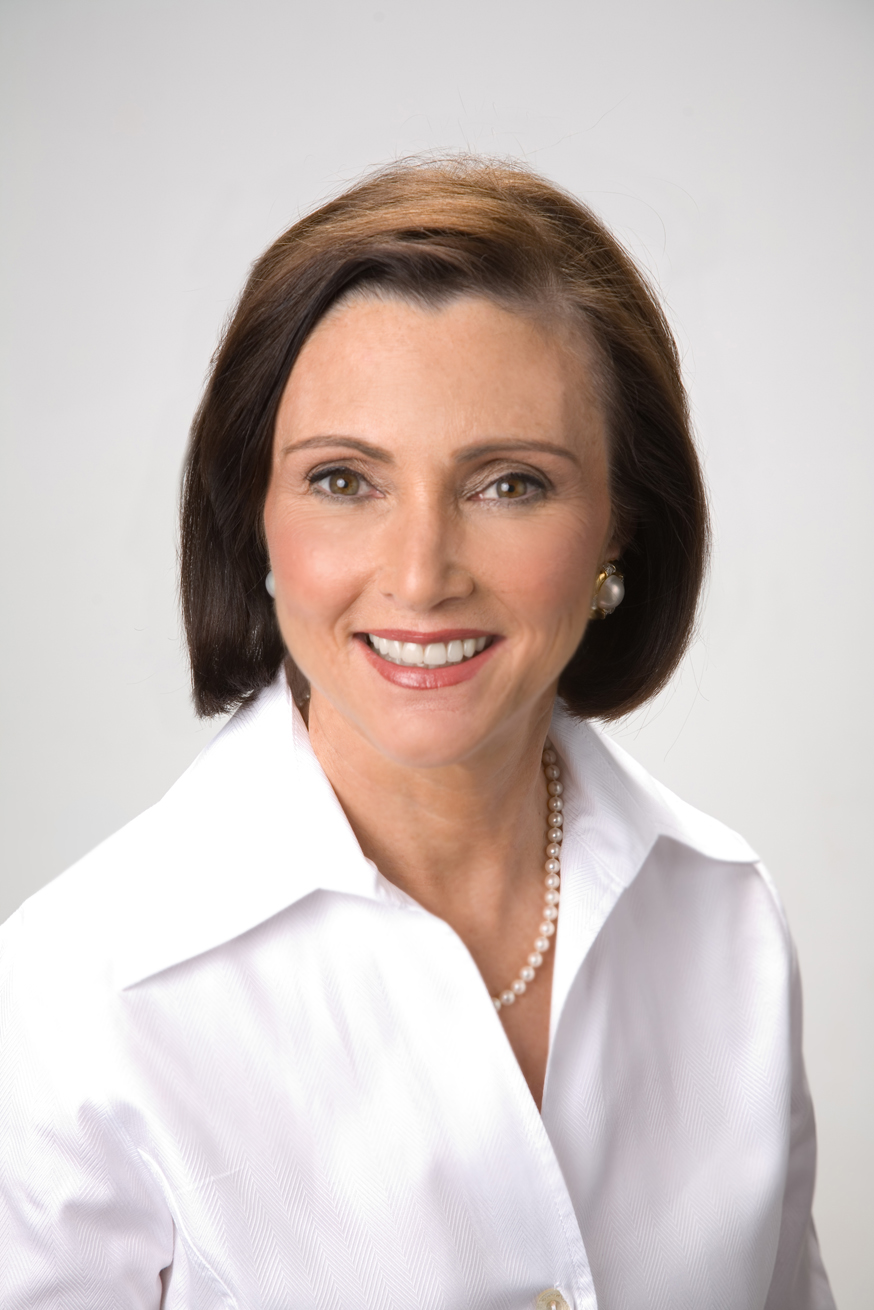
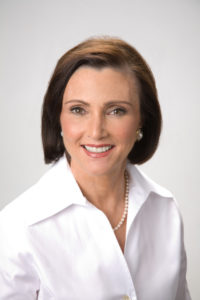 Growing up Jewish in rural Cary, Mississippi, in a cotton farming family, Deborah Lamensdorf Jacobs quickly understood that she was a living exemplar of her faith. She reflects, “It was really an honor to represent Judaism in our small community. The way we treated our neighbors underscored what we believed in. We valued education and opportunity. At my father’s funeral two years ago in Vicksburg, a man came through the receiving line and told me how when he was trying to raise funds to establish the Cary Christian Health Center to help minorities, the churches turned him down. My uncle and my father were the first ones who stepped up to fund the center. That’s an early example of how I saw philanthropy as a child. It was how we lived our values.”
Growing up Jewish in rural Cary, Mississippi, in a cotton farming family, Deborah Lamensdorf Jacobs quickly understood that she was a living exemplar of her faith. She reflects, “It was really an honor to represent Judaism in our small community. The way we treated our neighbors underscored what we believed in. We valued education and opportunity. At my father’s funeral two years ago in Vicksburg, a man came through the receiving line and told me how when he was trying to raise funds to establish the Cary Christian Health Center to help minorities, the churches turned him down. My uncle and my father were the first ones who stepped up to fund the center. That’s an early example of how I saw philanthropy as a child. It was how we lived our values.”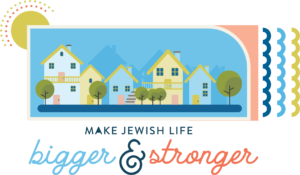
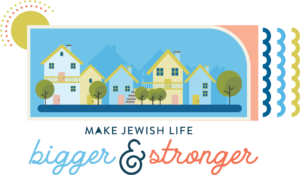
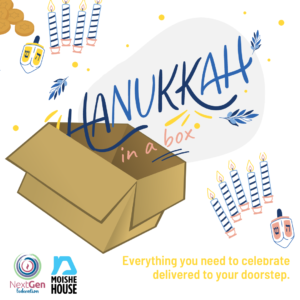
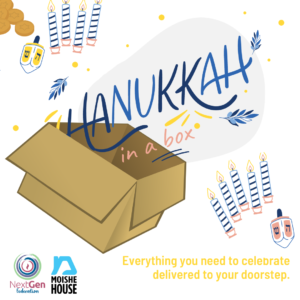 NextGen Federation is partnering with Moishe House to bring you Hanukkah in a box! Why sit on Zoom for another hour when you can get everything you need to celebrate your way sent right to your house? We’ll send you a menorah, candles, gelt, and more!
NextGen Federation is partnering with Moishe House to bring you Hanukkah in a box! Why sit on Zoom for another hour when you can get everything you need to celebrate your way sent right to your house? We’ll send you a menorah, candles, gelt, and more!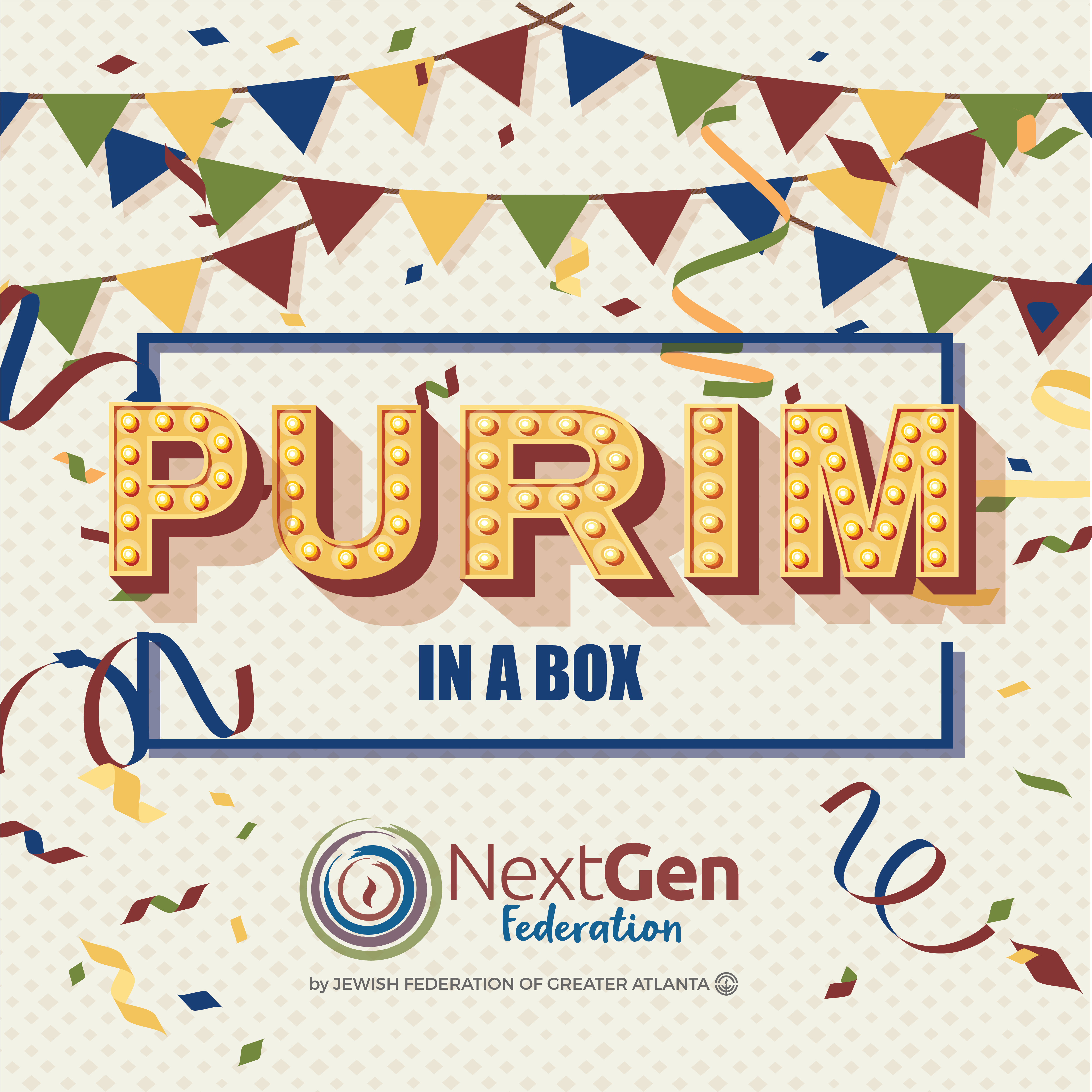
 This Purim (like this entire past year) is a bit different from years past. While we can’t get together in costume to read the Megillah and celebrate, we can fulfill another mitzvah for the holiday – sending Mishloach Manot (Purim gift baskets). Your free Purim box from NextGen Federation contains enough supplies to create four Mishloach Manot bags filled with a Hamantaschen-making kit and recipe, snacks, fun crafts, and more. Register today to pick up your free box.
This Purim (like this entire past year) is a bit different from years past. While we can’t get together in costume to read the Megillah and celebrate, we can fulfill another mitzvah for the holiday – sending Mishloach Manot (Purim gift baskets). Your free Purim box from NextGen Federation contains enough supplies to create four Mishloach Manot bags filled with a Hamantaschen-making kit and recipe, snacks, fun crafts, and more. Register today to pick up your free box.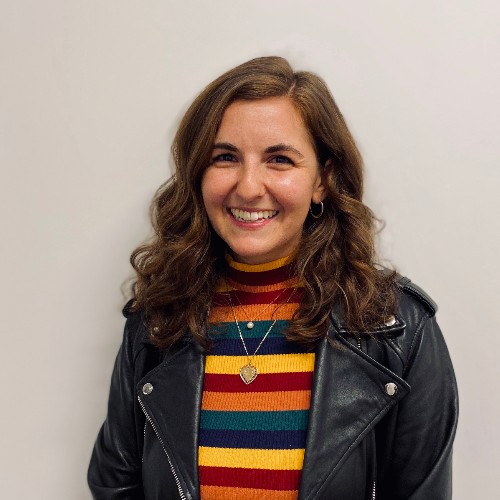
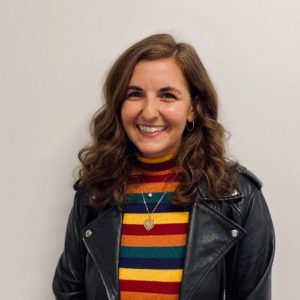 Pivoting from Fashion to Service
Pivoting from Fashion to Service 

